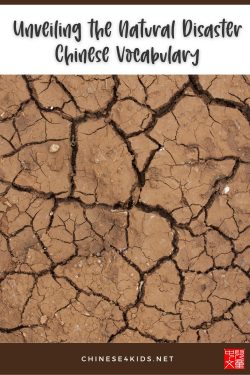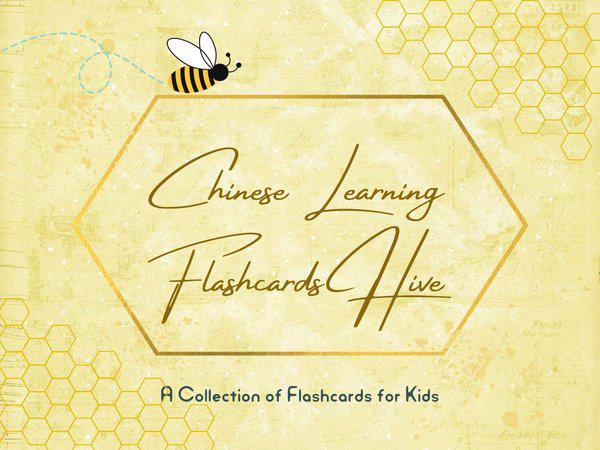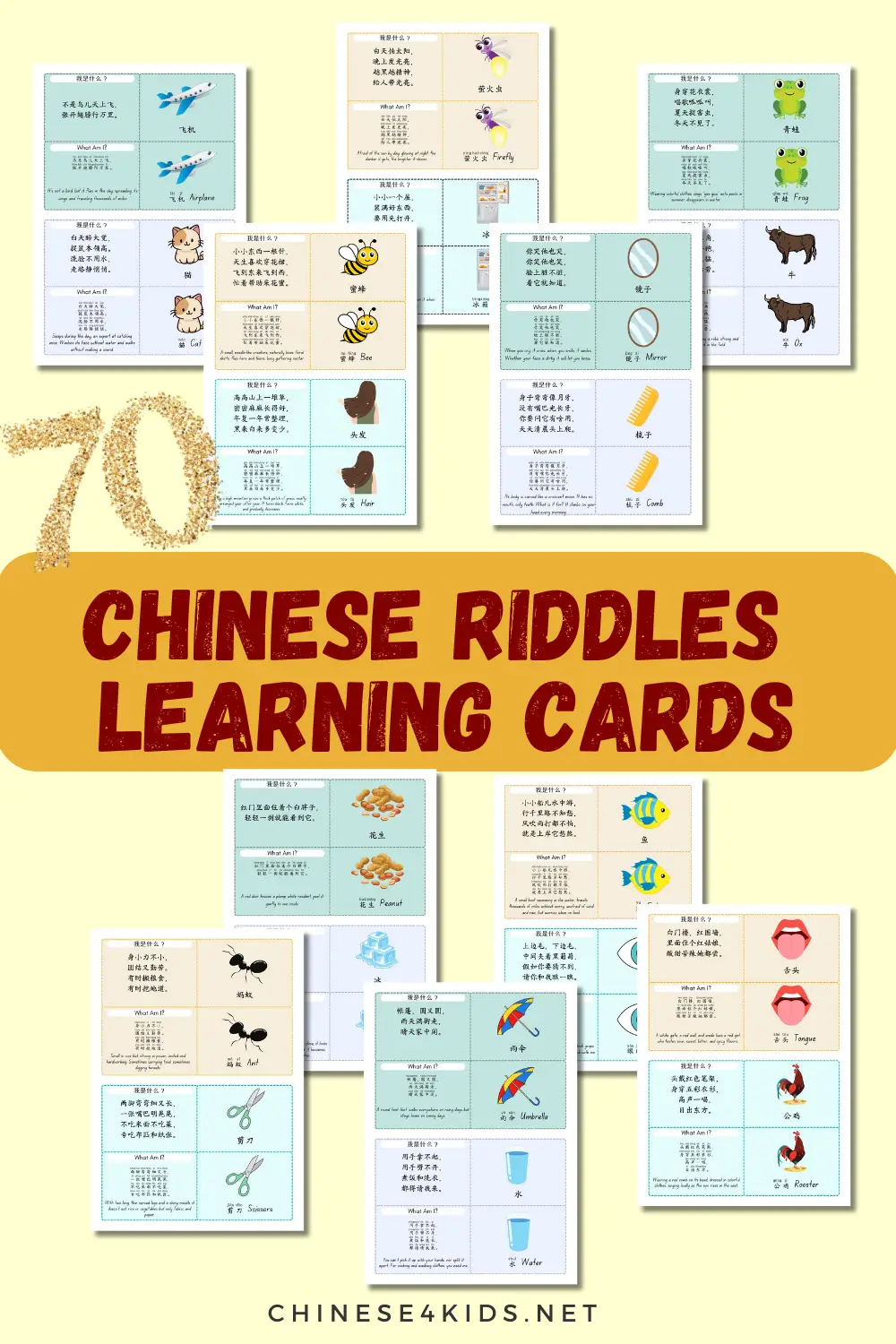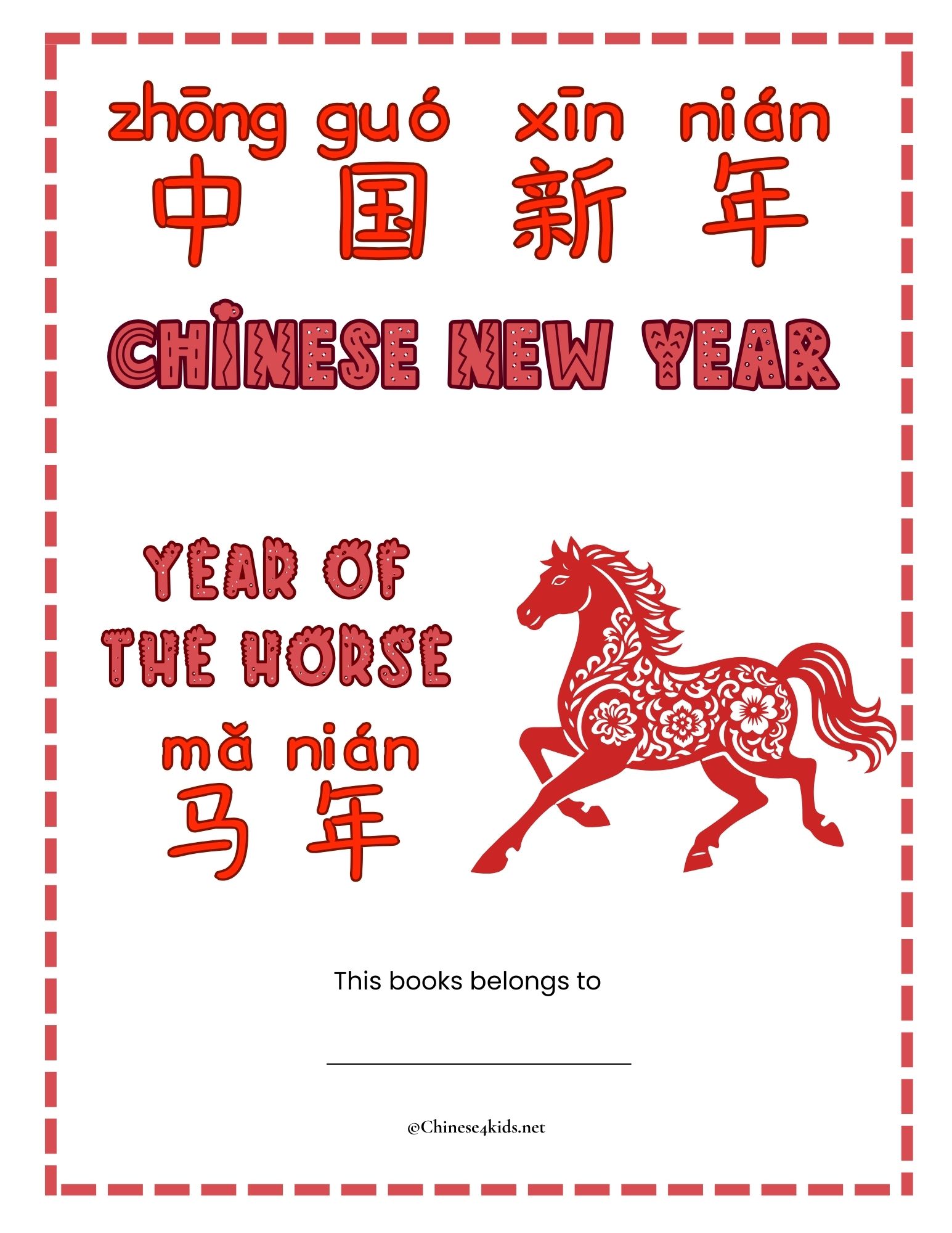
Home » Chinese language education » Unveiling the Natural Disaster Chinese Vocabulary: A Glimpse into Nature’s Fury
Unveiling the Natural Disaster Chinese Vocabulary: A Glimpse into Nature’s Fury
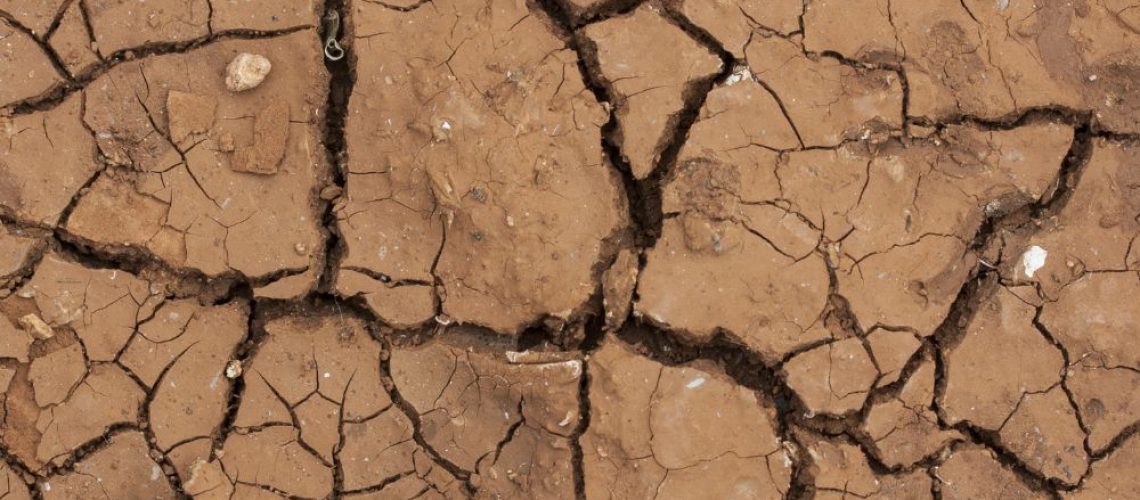
Nature’s wrath is an undeniable force, and the Chinese language reflects its power through a rich collection of natural disaster Chinese vocabulary. From ancient times to the present day, the Chinese people have witnessed and experienced a wide range of catastrophic events, each leaving an indelible mark on their language and culture. In this article, we will explore essential Chinese vocabulary related to natural disasters, providing insight into some of the most common and devastating occurrences like drought, flood, tsunami, earthquake, wildfire, hailstorm, meteor shower, landslide, volcanic eruption, cyclone, and lightning.
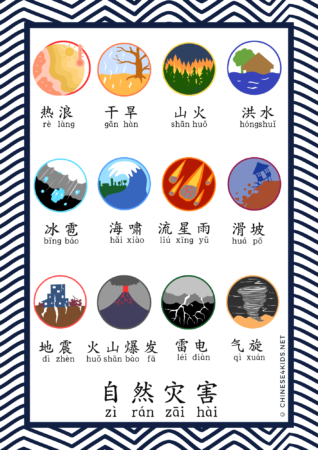 Source: Chinese Learning Flashcards Hive
Source: Chinese Learning Flashcards Hive
Heat wave 热浪 (rèlàng)
A heatwave is a period of excessively hot weather that typically lasts for several days or even weeks. It is characterized by unusually high temperatures, often well above the average for a particular region and time of year. During a heatwave, the weather conditions can become oppressive and uncomfortable, posing health risks to individuals, especially vulnerable populations such as the elderly, young children, and those with pre-existing health conditions.
“热浪” has two characters: “热” (rè) meaning “hot” and “浪” (làng) meaning “wave”
Example:
在南欧,今年的夏季热浪异常严重,导致许多地区气温居高不下,人们纷纷前往海滩和公园寻求凉爽。
In South Europe, the heatwave this summer has been unusually severe, causing soaring temperatures in many areas. People are flocking to beaches and parks to seek relief from the heat.
Drought (干旱 – gānhàn)
Droughts are periods of prolonged dryness that significantly reduce water availability in an area. Throughout history, China has faced severe droughts, affecting agriculture, water resources, and daily life.
“干旱” is a combination of two characters: “干” (gān) meaning “dry” and “旱” (hàn) meaning “drought.” The term underscores the gravity of this natural disaster.
Example:
在北方地区,由于连续几个月的干旱,农作物产量大幅下降。
In the northern region, due to several months of drought, crop yields have significantly decreased.
Flood (洪水 – hóngshuǐ)
Floods are overwhelming inundations caused by excessive rainfall or the overflow of bodies of water. China’s vast landscape and diverse climate make it susceptible to flooding, with the Yangtze River and other major waterways often experiencing devastating floods.
There are two characters in “洪水”: “洪” (hóng) meaning “flood” and “水” (shuǐ) meaning “water.”
Example:
这次暴雨导致河水上涨,引发了严重的洪水灾情。
The heavy rainfall led to the rising of the river water, causing severe flood disasters.
Tsunami (海啸 – hǎixiào)
Tsunamis are large ocean waves triggered by underwater earthquakes or volcanic eruptions. Though less frequent in China, they can have catastrophic consequences for coastal communities.
The term “海啸” combines “海” (hǎi) meaning “ocean” and “啸” (xiào) meaning “roar,” emphasizing the powerful nature of these waves.
Example:
那次海啸给沿海地区带来了毁灭性的打击,损失惨重。
The tsunami brought a devastating blow to the coastal region, causing massive losses.
Earthquake (地震 – dìzhèn)
Earthquakes are sudden and violent shaking of the ground caused by tectonic plate movements. China is prone to earthquakes, and its long history has witnessed numerous catastrophic seismic events.
The term “地震” is composed of “地” (dì) meaning “earth” and “震” (zhèn) meaning “shake.”
Example:
这次地震造成了大面积的建筑物损坏和人员伤亡。
The earthquake resulted in extensive building damages and casualties.
Wildfire (山火 – shānhuǒ)
Wildfires, or forest fires, are uncontrolled and destructive fires that spread rapidly through vegetation and forests. Though wildfire incidents in China are relatively fewer than in some other regions, they can still pose significant threats to the environment and human settlements.
The term “山火” combines “山” (shān) meaning “mountain” and “火” (huǒ) meaning “fire.”
Example:
干燥的气候条件导致山火迅速蔓延,造成了大片林区的破坏。
Dry climate conditions led to the rapid spread of the wildfire, causing extensive damage to forested areas.
Hail (冰雹 – bīngbáo)
Hails are weather phenomena in which balls of ice, known as hailstones, fall from the sky during thunderstorms. These hailstones can be large and cause damage to crops and property.
The term “冰雹” consists of “冰” (bīng) meaning “ice” and “雹” (báo) meaning “hail.”
Example:
昨晚的冰雹天气对果园造成了很大的损失。
Last night’s hailstorm caused significant damage to the orchards.
Meteor Shower (流星雨 – liúxīng yǔ)
A meteor shower is a celestial event in which a group of meteors or “shooting stars” that we observe in the night sky. It occurs when the Earth passes through the debris left by a comet.
The term “流星雨” combines “流星” (liúxīng) meaning “meteor” and “雨” (yǔ) meaning “rain.”
Example:
今晚有预测会有流星雨,让我们一起观赏这美丽的自然现象吧。
There is a forecast for a meteor shower tonight; let’s watch this beautiful natural phenomenon together.
Landslide (滑坡 – huápō)
Landslides are rapid and often destructive movements of rock, soil, and debris down a slope. Heavy rain, earthquakes, or volcanic activity can trigger landslides.
The term “滑坡” combines “滑” (huá) meaning “slide” and “坡” (pō) meaning “slope.”
Example:
暴雨过后,滑坡导致道路封锁,交通受到了严重影响。
After the heavy rain, landslides blocked the roads, severely affecting transportation.
Volcanic Eruption (火山爆发 – huǒshān bàofā)
Volcanic eruptions occur when magma, gas, and ash are expelled from a volcano’s vent. Although China is not as known for volcanic activity as some other countries, it still experiences volcanic eruptions in certain regions.
The term “火山爆发” combines “火山” (huǒshān) meaning “volcano” and “爆发” (bàofā) meaning “eruption.”
Example:
那座火山突然爆发,喷发的岩浆和烟雾让人们惊恐不已。
The volcano erupted suddenly, and the spewing lava and smoke caused great fear among the people.
Cyclone (气旋 – qìxuán)
A cyclone is a weather system, typically with swirling winds around a low-pressure center. It is a broad term that includes hurricanes and typhoons.
The term “气旋” combines “”气旋” combines “气” (qì) meaning “air” or “atmosphere” and “旋” (xuán) meaning “rotation” or “swirl.” This term aptly captures the circular motion and atmospheric nature of cyclones.
Example:
台风是一种强烈的气旋,其风力和降雨量可能给沿海地区带来毁灭性的影响。
Typhoons are powerful cyclones that can bring devastating impacts to coastal areas with their strong winds and heavy rainfall.
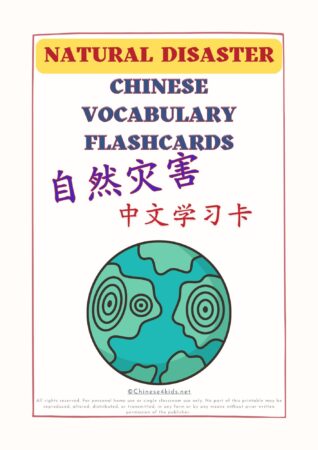 source: Natural Disaster Chinese Vocabulary Montessori 3-Part Flashcards
source: Natural Disaster Chinese Vocabulary Montessori 3-Part Flashcards
Studying these vocabulary words provides an opportunity to recognize the importance of climate change awareness and environmental conservation on a global scale. As language learners, we can appreciate how Chinese vocabulary not only reflects the impact of natural disasters but also serves as a powerful reminder of our collective responsibility to protect our planet and build more sustainable communities. Embracing the nuances of these terms enriches our language skills and cultural knowledge while reinforcing the need for unity in safeguarding our world for future generations.
If you like this post, share it
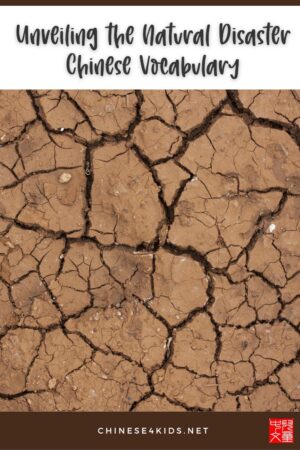
You May Also Be Interested:
- Chinese4kids Membership – a portal for busy Chinese teachers and parents
- Chinese learning flashcards Hive – a flashcards library that with regular additions of new quality Chinese learning flashcards
- Chinese learning worksheets collection – Also a part of Chinese4kids membership, this collection is for teachers and parents who want to have access to engaging worksheets and activity sheets created for kids learning Mandarin Chinese as an additional language
- Speak Chinese with Kids Course
- Chinese Vocabulary Made Easy Course
Recent Posts
Join Our Membership
Enroll to A Course
Buy An eBOOK
Our Posts
